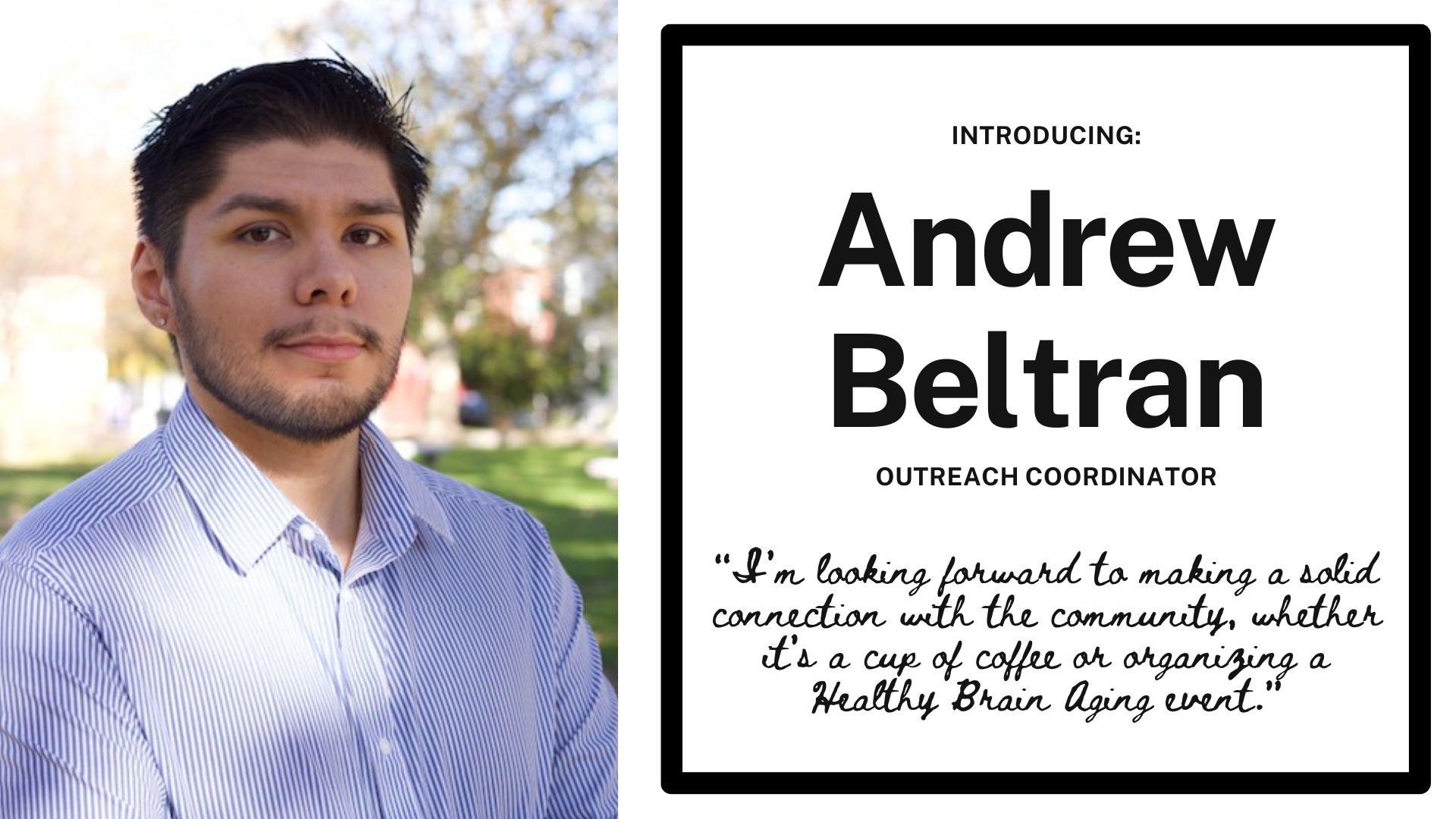For a translated version of this article, please click here.

Editor’s note: Andrew Beltran is no longer in this role. For inquiries about PMC’s outreach efforts, please contact Terrence Casey.
By Meghan McCarthy
As the Penn Memory Center (PMC) continues to develop new research opportunities for Latinos in Philadelphia, it has a new coordinator dedicated to these efforts: Andrew Beltran.
Latinos are developing Alzheimer’s disease and related dementias (ADRD) at a rate higher than any other racial or ethnic group in the United States, according to the Centers for Disease Control and Prevention. And yet they are frequently underrepresented in research.
Starting with the hire of Beltran, PMC is building relationships with Latino communities in Philadelphia, conducting health needs assessments, holding health education events, and evaluating the accessibility of research, clinical care, and training.
“Equitable dementia care begins with equitable research,” said Terrence Casey, director of communications and outreach. “And equitable research begins with making our neighbors in Philadelphia part of the conversation from the beginning.”
Beltran was a great fit for the role, Casey said, because of his undergraduate experience as a research assistant on the Tiempo Juntos para la Salud clinical trial, which aims to educate and aid an older Latino population with mild cognitive impairment (MCI).
“Underneath it all, my role is to talk: to talk to the community about healthy brain aging, to talk about these disparities, and to talk about services that could be offered,” said Beltran. “My role is to build community connection back with the Latino community.”
Beltran said his passion for health inequity is rooted in his upbringing, growing up in a Mexican community in Arizona. His mother spoke English, but his father and grandparents spoke mostly Spanish.
“A lot of things got lost in translation,” said Beltran. “I started to understand that, while not always obvious, there are many things that are not really equal due to language barriers.”
Beltran attended Haverford College on a QuestBridge Scholarship, which is designed to provide educational opportunity for high achieving students in low-income brackets. While he enjoyed Haverford, it was Beltran’s first experience of working and studying in a predominately white institution (PWI).
“I realized that the wants and needs of people like me aren’t well represented when you’re a minority,” said Beltran. “Learning about health disparities cemented my lived experiences.”
Majoring in biology and minoring in Spanish, Beltran found that advocacy within healthcare perfectly paired his career interests and personal experiences.
Now, Beltran will build upon the connections he’s already established with community members.
“I’m just really looking forward to making a solid connection with the community, whether it’s a cup of coffee or organizing a Healthy Brain Aging event,” said Beltran. “Older individuals have a lot to say, and they should be heard more often.”
For a translated version of this article, please click here.